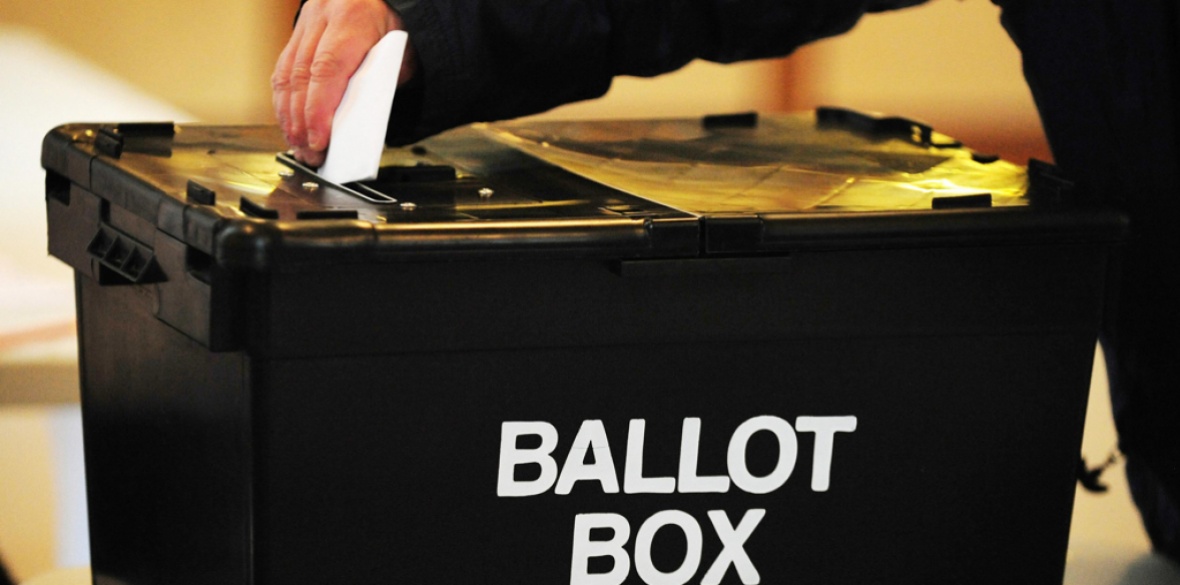This is the last article you can read this month
You can read more article this month
You can read more articles this month
Sorry your limit is up for this month
Reset on:
Please help support the Morning Star by subscribing here
A FEW weeks ago, Electoral Calculus, which regularly projects the results of future elections in the UK, predicted a disturbing outcome if an election was held now.
It showed that, in a fresh election, the Conservatives could win 40.5 per cent of the vote and 297 seats, whereas Labour could win 279 seats on 40.7 per cent of the vote.
In other words, Labour would win the election but would be denied office by Westminster’s voting system.
It’s a problem that’s more common than it seems. A “wrong winner” result locked Labour out in 1951 and it was the other way round in 1974.
But it’s not just progressive parties damaged by first past the post. Progressive policies in Britain, as things stand, face an uphill battle.
That’s not because there is a lack of support for policies like redistributive taxation or a strong welfare state.
Last year, the archaic “one-person-takes-all” method of counting votes completely discounted the voices of millions of voters.
At the last general election, it was 22 million to be exact. That’s the number of votes cast that had no impact on the result. And one in ten voters felt obliged to “hold their nose” and opt for their second or even third choice at the ballot box.
The consequence of this is that governments are formed with minority support but wield complete power — the “elective dictatorship” outlined by Tory peer Lord Hailsham in 1976.
A new report published today by trade unionists seeking democratic reform has highlighted just how damaging this is for progressive policies and how more consensual structures are much more amenable to progressive ends.
Landmark studies, from which the report draws, have shown that democracies with more consensual structures have more progressive social outcomes on a range of measures from a larger welfare state to more money spent on foreign aid and lower rates of prison incarceration.
When everyone’s vote counts, parties have to seek the votes of all voters, regardless of where they are. From almost exclusively targeting swing voters in wealthy suburbs, parties are forced to campaign for every vote no matter where it is cast. Those post-industrial areas left to wither on the vine are no longer ignorable.
There is also a multitude of studies, including Ljiphart’s Patterns of Democracy, that point to consensual democracies — where the proportion of votes broadly matches the proportion of seats in the legislature, ie proportional representation (PR) systems — having lower economic inequality.
For too long, political equality and economic equality have been viewed as totally separate entities. Far from it. True political equality requires a level playing field in the economic sphere, while economic equality can only be won through giving working people a real voice.
The mechanics behind this reality is that under consensual political systems, different parties have different electorates to satisfy.
When they work together in government, they are therefore dependent on a broader range of support and must satisfy a broader electorate.
The difference between the consensus required by a proportional voting system and the consensus required by a hung parliament under Westminster’s system, is that the latter tends to advantage negotiations with parties with defined geographic bases.
This means resources are often spread solely on the basis of geographic concerns — think the recent influence of the DUP on spending in Northern Ireland.
Yet in a PR system, other groups and interests can achieve recognition more easily — a green or feminist party can suddenly exert influence in a way that only a regionally-specific party could have done before.
Beyond these studies on policy, the concrete evidence shows that counties with a proportional voting system tend to elect more progressive governments.
A less polarised political system means that, for those parties in the middle, the best strategy is to work with the left to create a strongly redistributive state.
Time and time again we have seen voters opt for a progressive majority only to be denied a progressive government because of “vote splitting” on the left and a more party-united right.
Trade unionists gather in Scotland this week for the STUC Congress, with many hoping to build a movement for real political reform.
And while Scotland has used proportional voting systems for years, Politics For The Many — a new group of trade unionists — is stepping up to fight for electoral reform across Britain.
As things stand, the forces at play in the Westminster system are aligned against progressive politics, but a new democratic system can help us build a new economy.
We will not build a socially just Britain on the back of a rigged politics but through the truly “kinder, gentler” politics we deserve.
Billy Hayes is former general secretary of the CWU.










